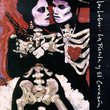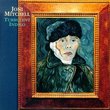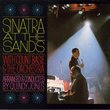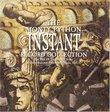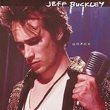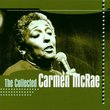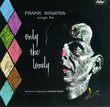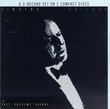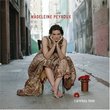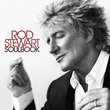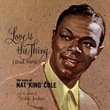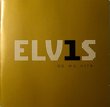| All Artists: Frank Sinatra Title: Great Songs From Great Britain Members Wishing: 0 Total Copies: 1 Label: Warner Bros UK Original Release Date: 1/1/1962 Re-Release Date: 5/17/1999 Album Type: Import Genres: Jazz, Pop, Broadway & Vocalists Styles: Swing Jazz, Traditional Jazz & Ragtime, Vocal Jazz, Easy Listening, Oldies, Vocal Pop, Classic Vocalists, Traditional Vocal Pop Number of Discs: 1 SwapaCD Credits: 1 UPCs: 093624521921, 093624521945, 603497977390 |
Search - Frank Sinatra :: Great Songs From Great Britain
 | Frank Sinatra Great Songs From Great Britain Genres: Jazz, Pop, Broadway & Vocalists
Out of Print in the USA as of 5/4/99. 1962 Release of 11 Songs by British Composers Recorded in Britain. Includes "The Very Thought of You", "we'll Meet Again"& More. ![header=[] body=[This CD is available to be requested as disc only.]](/images/attributes/disc.png?v=430e6b0a) ![header=[] body=[This CD is available to be requested with the disc and back insert.]](/images/attributes/disc_back.png?v=430e6b0a) ![header=[] body=[This CD is available to be requested with the disc and front insert.]](/images/attributes/disc_front.png?v=430e6b0a) ![header=[] body=[This CD is available to be requested with the disc, front and back inserts.]](/images/attributes/disc_front_back.png?v=430e6b0a) |
CD DetailsSynopsis
Album Details Out of Print in the USA as of 5/4/99. 1962 Release of 11 Songs by British Composers Recorded in Britain. Includes "The Very Thought of You", "we'll Meet Again"& More. Similar CDs
Similarly Requested CDs
|
CD ReviewsEMOTION RECOLLECTED IN TRANQUILITY Mark Blackburn | Winnipeg, Manitoba Canada | 01/10/2003 (5 out of 5 stars) "All the world's great arrangers---most of whom got to work with Frank Sinatra (the rest wish they had)---are (or were) American. With one exception: Canadian-born Robert Farnon. At last report, Bob was still alive and well, and living at "La Falaise" on the Channel Island of Guernsey (a letter with only that address can reach him). Now 85, he still makes the occasional foray into London to do what he's always done best. Andre Previn, told the late, great lyricist Johnny Mercer that "Robert Farnon is the greatest living string arranger in the world." The great ones who admit to Farnon's influence have included Nelson Riddle, Don Costa, Quincy Jones, Marty Paich, Neil Hefti, Torrie Zito and Johnny Mandel (just to name the best who worked with Frank Sinatra), plus, (among those who didn't, but wished they had) Henry Mancini, Roger Kellaway, and John ("Star Wars") Williams. Great popular singers who share that opinion, include Sarah Vaughn and Tony Bennett. The list of musicians who feel the same way is too long, but start with pianists Herbie Hancock, Oscar Peterson and George Shearing. Sinatra's voice on "Great Songs from Great Britain" may be functioning at only 80 per cent (my estimate) but it's still better than on some of his later recordings, and no worse than on his roughest days at Capitol in the 50s. Listen again to the Billy May "Come Fly With Me" CD and the lone Nelson Riddle arranged song -- Cole Porter's "I Love Paris." Sure, it's "rough" (was Frank up all night?) but still, you love it, right? Same with this CD: Precisely because he's the greatest interpreter of popular song, Sinatra makes adjustments to his delivery, transforming weaknesses into strengths before your very ears. Fascinating! So why wasn't this album released in America prior to year 2000? Having read all speculations here and elsewhere, I think the critics are simply uninformed. Because the singer has left true fans some `between-the-lines' clues to how much he loved these recordings. Let's begin with the speculation that Sinatra had `second thoughts' about what his American fans might make of the material----obscure, almost quaint, English songs, some dating to the First World War, which have Sinatra "gathering lilacs" or keeping a stiff upper lip "until we meet again" i.e. songs that might not survive a trans-Atlantic crossing, let alone achieve posterity. Well that ignores some important facts: Sinatra selected all these songs himself, in advance of his world tour (30 stops, the last in London, in aid of children's charities). Don Costa---Farnon's biggest booster in America (and the most heavily-influenced of his proteges) invested a lot of time, as Sinatra's `middle man,' cabling between LA and Farnon's island home, to ensure this recording `happened.' (In the end, Costa couldn't be there; but Nelson Riddle made it to one session at London's "CTS Bayswater" studios). The singer's only objection was uttered as he sipped some "JD" and listened to the playback of "Roses of Picardy" (now considered by some critics to be the loveliest `rose' of the bunch). Sinatra said: "Scrub `Roses of Picardy'---I don't like it" (meaning, he didn't feel he'd done it justice). So "Roses" was not included on the original LP, released only in Britain). The suggestion that Sinatra was in any way "embarrassed" by these recordings, is belied by his personal selection of "If I Had You" for inclusion among his 19, all-time favorite recordings, preserved on the 1996 compilation "Everything Happens to Me" (please see my review for that one). The singer himself approved the inclusion of two others, "Garden in the Rain" and "A Nightingale Sang in Berkeley Square" for the 4-CD Reprise box set. And the latest Sinatra compilations ("Romance" and "Love Songs") include this version of Ray Noble's classic, "The Very Thought of You." Enjoy great liner notes? There's none better written for any Sinatra release: You get literate musician Benny Green's original, 1962 notes, plus American James Isaacs' superb, 1992 supplements, closing with thoughts about Sinatra's achievement on "If I Had You." "If Sinatra's wistful, daydreamy first (take) in 1947 was truly in the subjunctive (IF I had you,) and if his cocky medium-bounce Riddle-arranged '56 take might be dubbed "I can have you," then this rendering, with its brandy-by-the-fireside feel and older-but-wiser protagonist, is more like "If I'd HAD you." Notwithstanding a lyric that's far more Tin Pan Alley than Tintern Abbey, Sinatra's (and Farnon's) conception is, to borrow from Wordsworth, "emotion recollected in tranquility."" Obscure but surprisingly moving Jon Warshawsky | San Diego, CA USA | 09/24/2002 (5 out of 5 stars) "When I bought a used copy of 'Great Songs from Great Britain', I had low expectations. Several writers had noted that Sinatra's voice was spent by the time he joined Robert Farnon in London to record the present set, and how the spare string arrangements had left the singer 'nowhere to hide.' Had Sinatra been about to record 'Come Fly with Me', the result no doubt would have been a disaster. But for these contemplative, romantic ballads, a thinner Sinatra voice works perfectly.The dramatic acappella opening to 'The Very Thought of You' states the theme -- stately and romantic -- British, basically (!) The middle of the album, 'Gypsy', 'Roses of Picardy' and 'Nightingale', comprises some of the more heartfelt material from Sinatra's early Reprise era. The vulnerability in the usually powerful voice could not have shown up in a more fortunate group of songs.I also question whether Sinatra was truly on his last legs. 'Garden in the Rain' displays the same remarkable breath control that enabled him to sustain long notes in a way that made his phrasing so natural. Sinatra may not have been at his vocal peak -- or anywhere near it -- but every time I listen to 'Great Songs from Great Britain' I'm left with the sense that Sinatra at 40 percent was like other singers at 80 percent.Among the Reprise albums, I would highly recommend this one. The material is right up Sinatra's alley (tasteful, and of lasting value) and Farnon's arrangements seem more akin to Nelson Riddle's than to Gordon Jenkins' sometimes-too-heavy strings. All brilliant, but Farnon never lays the violins on too thick.Why this album has not been remastered and re-released eludes me. Sound quality is fine for 1962, however, and interested listeners would be well served to find a used copy in the meantime. Sinatra was dissatisfied with these recordings when he made them, and reportedly never released them in the United States. Considering the availability of far lesser albums, it is high time to bring 'Great Songs from Great Britain' back to market (if you're reading this, Reprise...)" COMMAND PERFORMANCE Giovanni | Chicago, IL | 01/27/2003 (5 out of 5 stars) "This long fabled collection of tunes from "across the pond" by Francis Albert Sinatra is definitely a point of interest along the road of collecting important works by one of the world's greatest singers. Much has been written about Sinatra's vocal condition being under par during the undertakings presented here. The astute Sinatra fan will remark that he sounds thin here and there, or he cuts off notes when he normally wouldn't; but it actually works in his favor on most of these songs, which are required to be sung with a tone of wistfulness and longing. Special mention must first be made, when reviewing this album, to the exquisite backings charted by one of Britain's favorite musical brainchildren, Robert Farnon (whose work with Tony Bennett years after this album merits some of that "other" Italian crooner's absolute finest) Nelson Riddle lent a minimal helping hand with chords and note changes, but this was all Farnon and Sinatra, the one and only time these two geniuses ever got together. All the stories are true; the piano really did break down that first night, and they went with the celeste, and it came off without a hitch. Yes, Frank did want to dump ROSES OF PICARDY, dreamily sad as it seems here; (Bobby Darin would team up with Billy May and give this one a great swing later on) Happily for us, ROSES OF PICARDY has been restored here. Everything you've heard about this album is true, except if you believe the story that this originally UK-only released gem finds Sinatra straining to get through the works. Just listen to the subdued intensity in his heartbreak version of NOW IS THE HOUR. A touching performance, as is the other great anthem of so-longs-ville, WE'LL MEET AGAIN. Believe it or not, the prettily-titled WE'LL GATHER LILACS IN THE SPRING comes off very well with Sinatra setting the scene along the lane beautifully, abetted by what I consider the finest chart written for this album by Robert Farnon. The slyness incorporated in both arrangement and vocal on the classic IF I HAD YOU is not to be missed, complete with referential brass section tipping their 'darby' to Nelson Riddle in that tight, sweet sound. Noel Coward's I'LL FOLLOW MY SECRET HEART is a fantastic closer on this very pertinent set, and differs greatly from the version Sinatra laid down with Axel Stordahl on the classic "Point Of No Return" package for Capitol in 1960. The soaring strings at the end of the chart show Farnon's exuberance once again, as if to remind us of just how wonderful each of the charts were in this album. You'll thoroughly enjoy this album."
|

 Track Listings (11) - Disc #1
Track Listings (11) - Disc #1
